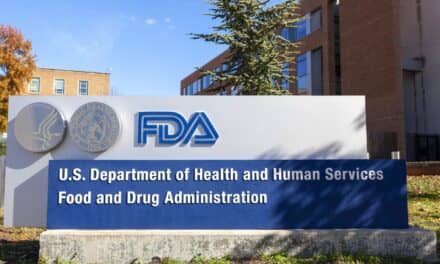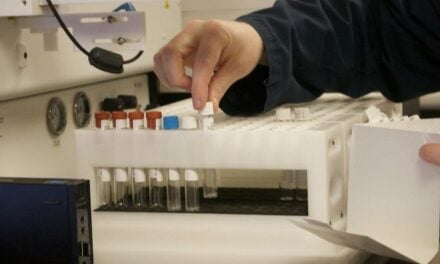Lucid Diagnostics, a commercial-stage, cancer prevention medical diagnostics company, announced that a prospective Veterans Affairs screening study demonstrated excellent performance of Lucid’s EsoGuard Esophageal DNA test for esophageal precancer detection.
Investigators at the Louis Stokes Cleveland Veterans Affairs Medical Center, led by Katarina B. Greer, MD, MS, associate professor of Medicine at Case Western Reserve University School of Medicine, have released data from a Department of Defense funded prospective clinical validation study of patients who met strict national society guideline criteria for esophageal precancer testing.
The manuscript entitled Non-endoscopic screening for Barrett’s esophagus and Esophageal Adenocarcinoma in at risk Veterans is available on the leading health sciences preprint server, medRxiv, pending peer review and publication.
“We are grateful to Dr. Greer and her co-investigators for this sentinel contribution to the clinical evidence supporting EsoGuard esophageal precancer testing,” says Victoria T. Lee, MD, Lucid’s chief medical officer. “Data from this clinical validation study, the first in an ‘intended use’ screening population, closely mirror EsoGuard performance data from two previously reported NCI-funded case-control clinical validation studies—the original multi-center study which first introduced the technology, and the recently completed BETRNet study whose results were posted as a preprint last year pending peer review and publication. Collectively, these three clinical validity studies demonstrate excellent EsoGuard sensitivity and negative predictive value, including unprecedented performance of a molecular diagnostic test in detecting a precancer. They strongly support EsoGuard’s use as a widespread screening tool to prevent esophageal cancer through the early detection of esophageal precancer.”
Further reading: Lucid Diagnostics Launches Next-Gen Esophageal DNA Test
EsoGuard Esophageal DNA Test Study Results
The manuscript reports on 128 eligible patients with no prior history of upper gastrointestinal endoscopy (EGD) who met criteria for esophageal precancer screening based on current American College of Gastroenterology guidelines (presence of chronic heartburn and at least three of six additional risk factors—age over 50 years, male sex, white race, obesity, smoking and positive family history). According to Lucid Diagnostics, 124 patients underwent successful non-endoscopic esophageal cell sampling using the EsoCheck Cell Collection Device followed by EGD. Biopsies were performed during EGD if esophageal precancer was suspected based on appearance.
Twelve patients with esophageal precancer and two patients with esophageal cancer were confirmed on endoscopy for an overall disease prevalence of 12.9%. 111 patients had sufficient DNA for EsoGuard analysis. EsoGuard sensitivity and specificity were 92.9% and 72.2%, respectively. Negative and positive predictive were 98.6% and 32.5% respectively. Although specificity was somewhat lower than in prior studies—likely due to the absence of routine biopsies of the gastroesophageal junction, absence of biopsies in patients with minimal or no suspicious areas on EGD, a higher mean age, and higher proportion of current smokers—a solid positive predictive value was preserved, resulting in a 2.5-fold increase in the positive yield of EGD. Good tolerance and acceptability of EsoCheck cell sampling was also reported.
The authors conclude that “[g]iven the increasing prevalence of [esophageal cancer]… and improved effectiveness of ablative and endoscopic resection techniques available to patients with early stages of disease, this screening platform [EsoGuard] opens the window to improved prognosis for [esophageal cancer] by increasing access to minimally invasive, well tolerated office-based testing.”





